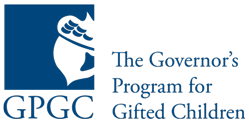The three areas of academic study in the Junior Division are science, composition, and the humanities. The curriculum at the Governor’s Program emphasizes a grasp of concepts, principles, and relationships rather than the mastery of a body of facts and techniques. Students are provided learning opportunities both in group settings and through individual work with their teachers, with instruction culminating in a major research project to be presented at the end of the third year.
The science curriculum is designed to help the students grow in their attitudes toward science, their appreciation of science, and their knowledge of scientific methods. One of the basic elements of the curriculum is an emphasis on understanding the scientific approach to solving problems: learning how to ask questions that can be answered by scientific inquiry, restating those questions as hypotheses, and devising ways to test those hypotheses. This approach should not only help the students in science, it should enhance their overall ability to think and discover the world around them.
The composition curriculum teaches students basic writing skills and concepts and how to use these skills to better express themselves, with a focus on creative writing.
The humanities curriculum introduces the students to some of the important philosophical questions that human beings have asked through the ages. What does it mean to be human? How can we tell good from evil? Where can we find truth and beauty, freedom and understanding? How do we balance freedom and responsibility? Through the study of selected literary works, the students will look at such questions as these and others under the themes of Truth, Justice, Freedom, Virtue, Wisdom, and Beauty.
Please visit the links to the left for more information about each major area of the curriculum as well as the fine arts and Senior Division curriculum.

